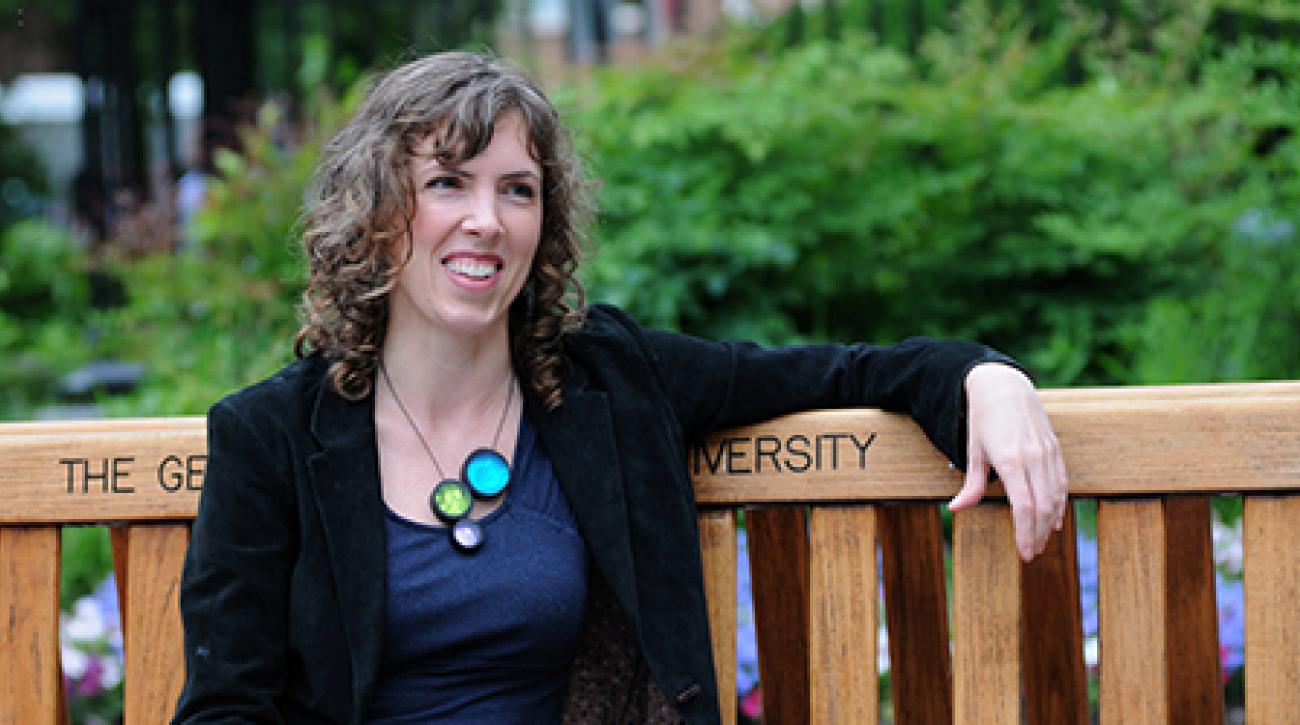The Department of Environmental and Occupational Health is pleased to announce that Sabrina McCormick, PhD has joined the faculty as an Associate Professor. McCormick, a sociologist and documentary filmmaker, studies how communities prepare for and respond to heat waves, oil spills, and other events that affect environmental health. She teaches students not only about what environmental health threats exist, but how to communicate about them effectively.
“Dr. McCormick’s passion for understanding how communities relate to and interact with their environment is a welcome asset to our department’s efforts to advance sustainability in the face of climate disruption,” says Melissa Perry, ScD, MHS, Chair of the Department of Environmental and Occupational Health. “We are delighted to have her as a colleague.” McCormick will also hold joint appointments in the Media & Public Affairs School and the Columbian College's Sociology Department.
From serving on an Intergovernmental Panel for Climate Change working group to filming Gulf Coast residents responding to the BP/Deepwater Horizon oil spill, McCormick is always considering how communities can best shape their environments for better health. “Community activists and other lay people have very important roles to play in science and democracy, but they’re often marginalized,” she explains. “My goal is to understand how we as researchers can work together with communities to create healthier environments.”
Climate and Communities
As a co-author of the Intergovernmental Panel for Climate Change (IPCC) report “Managing the Risks of Extreme Events and Disasters to Advance Climate Change Adaptation,” McCormick is well acquainted with the kinds of extreme weather events that will increase in frequency and intensity as global climate disruption continues. Since such events are likely to affect the world’s most vulnerable populations most severely, she’s concerned about how intervening with those communities can reduce impacts, and how these actions might be able to reduce climate change overall. Actions communities and countries take before and after hurricanes, heat waves, droughts, and other such events can minimize harm.
Heat waves are a good example. In one study, McCormick and her colleagues interviewed local residents, government officials, and community leaders in Detroit, New York, Philadelphia, and Phoenix to learn which residents are most vulnerable to the impacts of heat waves and how successfully cities prevent deaths and severe illnesses when the temperature soars. The team is now in the process of publishing that research, after holding workshops in each city to inform decision-makers and residents about their findings.
“Do residents know what they need to do to stay cool? Do elderly residents and other vulnerable people have neighbors or relatives checking on them? Are cooling centers available, and can people get to them?” These are the factors that can influence whether a heat wave causes deaths or not. And, McCormick stresses, they’re factors that municipal governments, nonprofits, and community groups can control.
Environmental Health on Film
While she was earning her PhD in sociology at Brown University, McCormick was also doing film production work at Rhode Island School of Design, and she has continued to make films ever since. While researching the role of environmental factors in breast cancer, she realized that making a documentary would be an ideal way to reach members of the public who might not seek out a book on the topic. Her award-winning film, No Family History, was released with the book and has been screened across the U.S.
Filming is also a form of research, and McCormick has found that she can learn things while filming subjects over the space of weeks or months that she wouldn’t by conducting a one-time qualitative interview. “The level of intimacy is much greater when you film a subject over a long period of time,” she explains. “As you develop a relationship, people open up in front of a camera. They know what they’re saying is potentially reaching thousands of people, and that adds a level of gravity to it.”
At the moment, McCormick and her crew are filming residents of the Gulf Coast who’ve been affected by the BP/Deepwater Horizon oil spill that occurred in the Gulf of Mexico in April 2010. McCormick received a grant from the National Science Foundation to compare online crowdsourced data (observations and measurements submitted by local residents to an online database) with traditional risk-assessment processes. “Looking at crowdsourced data alongside more traditional pollution measurements from government agencies can give us a more complete picture of who is affected by this disaster and how they're affected,” says McCormick. The film, After the Cap, is a visual portrayal of the issues – and it will reflect what the local residents have experienced in the months and years after the droves of camera crews left the Gulf.
“People who are affected by disasters and environmental contamination should have tools to protect themselves when there are gaps in the oversight and policymaking processes,” McCormick explains. “With community-based participatory research, we’re working toward empowering communities to minimize harmful impacts and prevent further harm.” And when it comes to After the Cap, she hopes audiences who watch it will feel inspired to join the movement for more sustainable energy choices.


